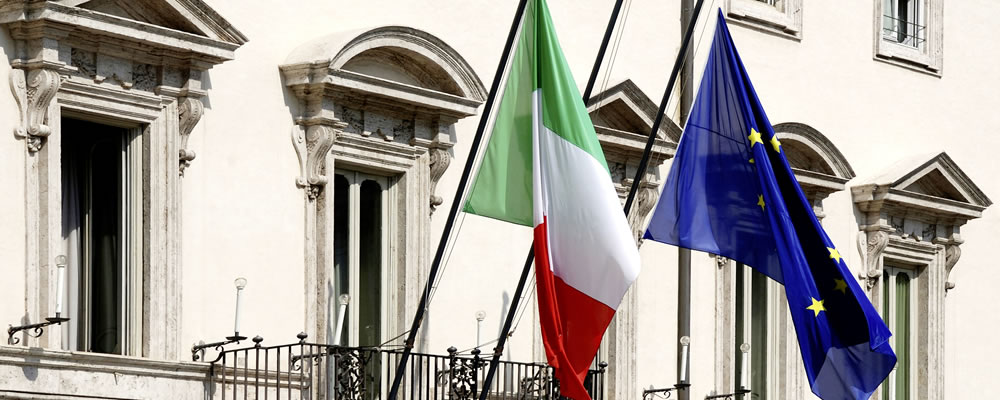Euro to South African Rand Exchange Rate Rebounds Despite Lower German Confidence Stats
Comments from Italy’s Deputy Prime Minister, Matteo Salvini, helped the Euro to South African Rand (EUR/ZAR) exchange rate to climb slightly on Monday, though its gains were limited thanks to higher risk-sentiment.
Last week saw EUR/ZAR plunge from 15.98 to 15.74, amid higher demand for emerging market currencies like the South African Rand (ZAR).
Since markets opened this morning, EUR/ZAR briefly dipped to a low of 15.61 – the pair’s lowest levels in three months. EUR/ZAR has since rebounded slightly, but still only trends near the level of 15.70.
While the Euro (EUR) is being supported by hopes that Italy and the EU could reach some kind of conciliation regarding the issue of Italy’s controversial budget, the Euro’s strength is limited by some underwhelming German confidence figures.
Meanwhile, the South African Rand is avoiding losses, as investors are more willing to take risks ahead of an anticipated G20 summit later in the week.
Euro (EUR) Exchange Rate Recovery Limited by Weaker German Confidence
Investors bought the Euro back from its worst levels versus the South African Rand on Monday, thanks largely to speculation that Italy and the EU could reach a breakthrough on the issue of Italy’s budget plan.
Italy’s controversial budget plan was rejected twice by the EU due to its intention to run a 2.4% budget deficit in order to fulfil borrowing and spending promises.
Over the weekend though, Italian Deputy Prime Minister Matteo Salvini indicated more strongly that Italy was open to changing its stance, bolstering market hopes that some kind of conciliation could be reached without the EU needing to take disciplinary measures.
However, demand for the Euro was limited following the publication of Ifo’s latest German business confidence stats on Monday morning.
Ifo’s German business climate figure unexpectedly slowed to 102 in November, with expectations sliding to 98.7. The current conditions figure was slightly higher than expected though, at 105.4.
According to Ifo Chief Clemens Fuest, the data overall indicated that the outlook for Germany’s economy was becoming cloudier:
‘Sentiment among German businesses weakened further this month.
Companies scaled back their assessments of the current business situation albeit from a high level. Their business expectations also clouded over.’
South African Rand (ZAR) Exchange Rate Benefits from Hopes for US-China Trade Talks
Investors have been more eager to buy risky emerging market currencies like the South African Rand since last week, due to numerous global factors.
As analysts increasingly predict that global growth will slow in the coming years and bets for higher interest rates from the Federal Reserve dampen, investors have been returning to emerging market currencies instead.
Investors were also optimistic that the US and China would avoid further trade escalations and aim to show progress in trade tensions during a G20 summit towards the end of the week.
While uncertainty about the G20 summit will likely limit the Rand’s appeal too, the Rand has also found support amid recent hawkishness from the South African Reserve Bank (SARB).
The bank unexpectedly hiked South African interest rates last week and analysts predict it could mean there is more tightening ahead.
Euro to South African Rand (EUR/ZAR) Exchange Rate Could be Volatile as Risk Events Near
The Euro to South African Rand (EUR/ZAR) exchange rate may not see much significant shift in movement until the end of the week, unless there are surprising notable developments regarding the issue of Italy’s budget.
Market risk-sentiment is currently stronger, but as the G20 summit approaches investors will become more focused on the upcoming meeting between US President Donald Trump and Chinese President Xi Jinping.
As recently as last week, tensions between the US and China remained high. However, the nations are under pressure to show that progress has been made in de-escalating trade tensions.
This will leave the South African Rand volatile as investors anticipate the outcome of the meeting.
South African business confidence data on Tuesday and consumer confidence on Wednesday may also influence the South African Rand slightly in the coming sessions.
The Euro is more likely to be influential though. Any signs that Italy and the EU are getting closer to a breakthrough in talks would leave the shared currency stronger.
French consumer confidence tomorrow and Germany’s GfK consumer confidence report on Wednesday could also influence the Euro to South African Rand (EUR/ZAR) exchange rate.



